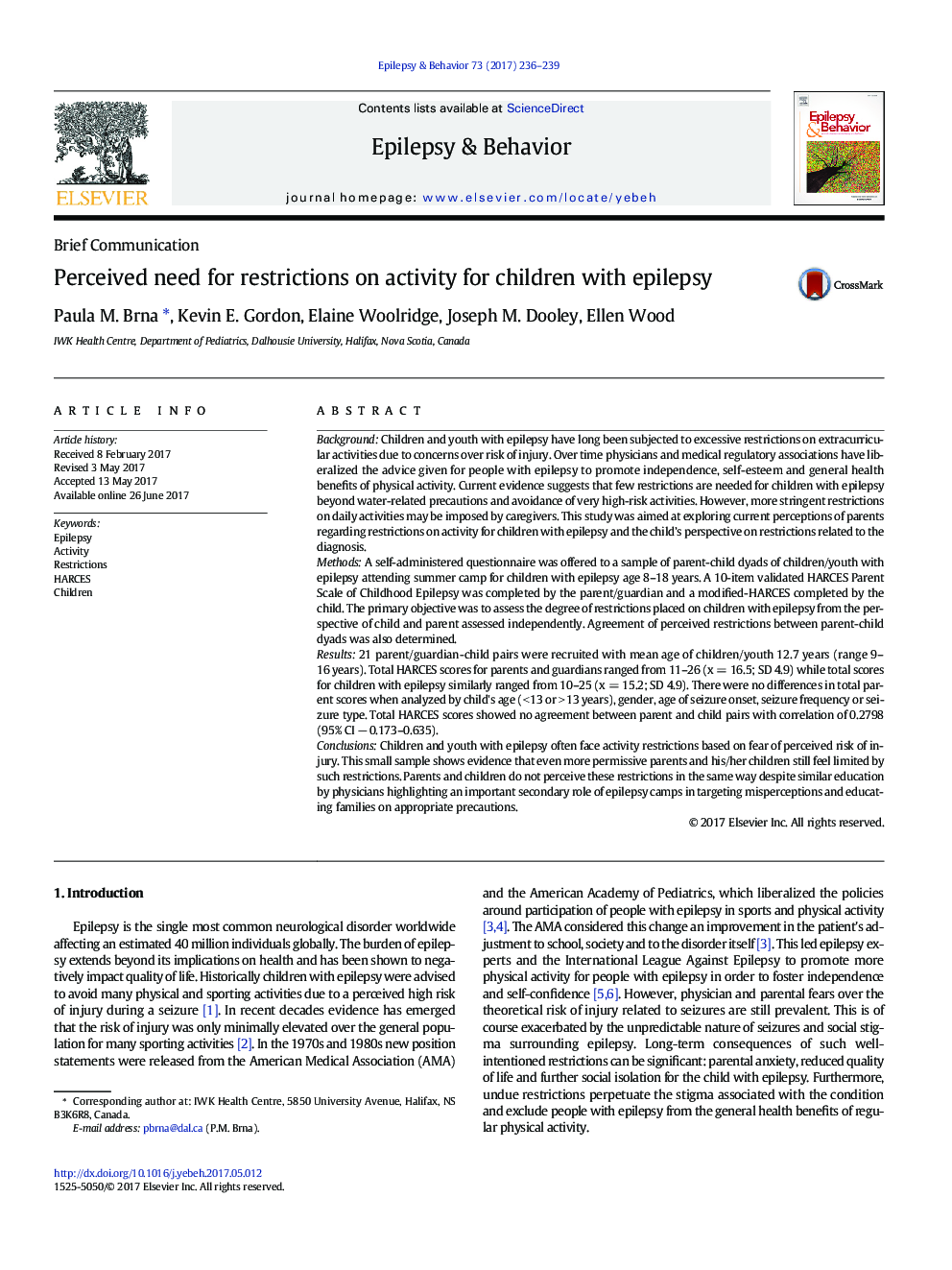| کد مقاله | کد نشریه | سال انتشار | مقاله انگلیسی | نسخه تمام متن |
|---|---|---|---|---|
| 5628370 | 1579820 | 2017 | 4 صفحه PDF | دانلود رایگان |
BackgroundChildren and youth with epilepsy have long been subjected to excessive restrictions on extracurricular activities due to concerns over risk of injury. Over time physicians and medical regulatory associations have liberalized the advice given for people with epilepsy to promote independence, self-esteem and general health benefits of physical activity. Current evidence suggests that few restrictions are needed for children with epilepsy beyond water-related precautions and avoidance of very high-risk activities. However, more stringent restrictions on daily activities may be imposed by caregivers. This study was aimed at exploring current perceptions of parents regarding restrictions on activity for children with epilepsy and the child's perspective on restrictions related to the diagnosis.MethodsA self-administered questionnaire was offered to a sample of parent-child dyads of children/youth with epilepsy attending summer camp for children with epilepsy age 8-18 years. A 10-item validated HARCES Parent Scale of Childhood Epilepsy was completed by the parent/guardian and a modified-HARCES completed by the child. The primary objective was to assess the degree of restrictions placed on children with epilepsy from the perspective of child and parent assessed independently. Agreement of perceived restrictions between parent-child dyads was also determined.Results21 parent/guardian-child pairs were recruited with mean age of children/youth 12.7 years (range 9-16 years). Total HARCES scores for parents and guardians ranged from 11-26 (x = 16.5; SD 4.9) while total scores for children with epilepsy similarly ranged from 10-25 (x = 15.2; SD 4.9). There were no differences in total parent scores when analyzed by child's age (< 13 or > 13 years), gender, age of seizure onset, seizure frequency or seizure type. Total HARCES scores showed no agreement between parent and child pairs with correlation of 0.2798 (95% CI â 0.173-0.635).ConclusionsChildren and youth with epilepsy often face activity restrictions based on fear of perceived risk of injury. This small sample shows evidence that even more permissive parents and his/her children still feel limited by such restrictions. Parents and children do not perceive these restrictions in the same way despite similar education by physicians highlighting an important secondary role of epilepsy camps in targeting misperceptions and educating families on appropriate precautions.
Journal: Epilepsy & Behavior - Volume 73, August 2017, Pages 236-239
